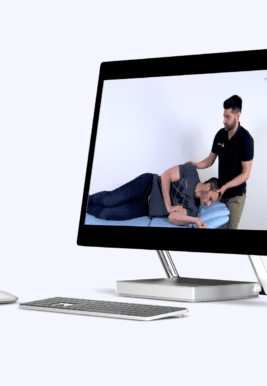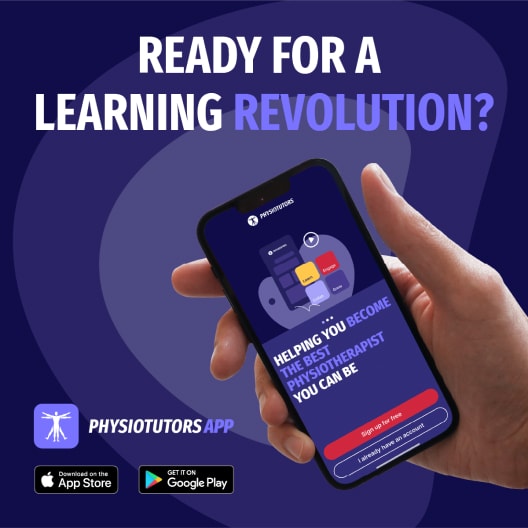Learn
Cervical Torsion Test | Dizziness Assessment
The Cervical Torsion Test examines dizziness and nystagmus provoked by neck torsion and has demonstrated strong diagnostic utility in confirming a diagnosis of cervicogenic dizziness compared to benign paroxysmal positional vertigo according to a study of L’heureux-Lebeau et al. (2014).
However, it was previously suggested that nystagmus during this test may often be present in people who are healthy because of activation of the cervico-ocular reflex.
Furthermore, the precise amount of nystagmus required to determine a positive test would be difficult to observe with the naked eye and may require video-oculography that may not be available in the clinic. Thus the use of subjective symptoms has been suggested as an alternative clinical measure.
Trealeaven et al. (2019) have performed this test in a group of healthy subjects to determine the test’s specificity. They found a specificity of 98.5% in patients during the torsion part of the test. As sensitivity values first have to be evaluated in symptomatic groups, the clinical use of this test is unknown at this moment.
To perform the test, have the patient seated on a swivel chair with the hip and knees flexed to 90 degrees. The patient closes his eyes in order to minimize afferent activity from the visual system.
Then, the examiner fixates the patient’s head in neutral position and asks the patient to actively rotate the trunk to one side for at least 45 degrees and up to 90 degrees and to hold it for 30 seconds.
This test is scored positive if the patient reports dizziness, visual disturbances, unusual eye movements after opening the eyes after the test, speech disturbance, motion sickness or nausea, slurred speech, dysphagia, light-headedness, tinnitus, headache or paresthesia. These symptoms can occur during any of the four positions or immediately after the test.
LEARN TO TREAT THE MOST COMMON CAUSE OF VERTIGO IN THIS FREE MINI-VIDEO-SERIES

Next to the Cervical Torsion Test, your dizziness exam should include the following assessments:
- Gaze stability
- Saccadic Eye Movement
- Eye-Head Coordination
- Postural Stability
- Joint Position Sense Error
- Smooth Pursuit Neck Torsion Test
- Head-Neck Differentiation Test
References
Like what you’re learning?
BUY THE FULL PHYSIOTUTORS ASSESSMENT BOOK
- 600+ Pages e-Book
- Interactive Content (Direct Video Demonstration, PubMed articles)
- Statistical Values for all Special Tests from the latest research
- Available in 🇬🇧 🇩🇪 🇫🇷 🇪🇸 🇮🇹 🇵🇹 🇹🇷
- And much more!








